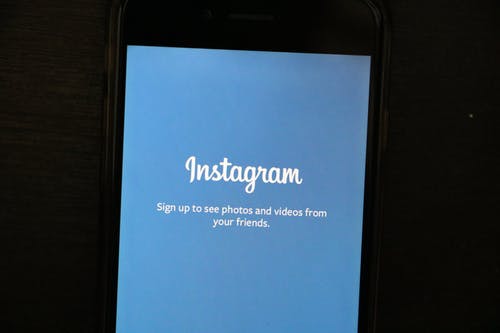The mark of a new year always brings big changes, and this January certainly set the bar for how digital marketing and public relations will have to evolve in 2018. In a move that focuses on bringing meaningful interactions back to social media, Facebook announced it will put posts from friends and family members higher than public posts in users’ feeds. For brands, the algorithm change means increased competition for space in the News Feed, and decreased reach for those not willing to pay to play.
Additionally, Amazon is poised to become the third largest digital advertising platform, quickly outpacing the growth rates of ad giants Facebook and Google. In addition to its eCommerce advertising offerings, Amazon is reportedly in talks with consumer brands about introducing ads on its Echo device, powered by the Alexa voice assistant. Meanwhile, Facebook is set to launch its own voice-activated smart home device later this year, a smart move seeing that 40 million Americans now own smart speakers.
What will 2018 hold for digital marketing and PR? Continue reading to catch up on all the news you may have missed in January and learn more about what to expect in the coming year.

Social Media
Facebook Algorithm Update Focuses on Friends and Family in News Feed
Facebook announced another News Feed algorithm update coming to the social network this year, which focuses on putting posts from friends and family members higher than public brand posts in users’ feeds. Over the next few months, Facebook will begin prioritizing posts that “spark conversations and meaningful interactions between people” and, in particular, give better reach to posts from friends and family over public content. The changes will go into effect during the next few months, and the social network warned that pages may see their reach, video watch time and referral traffic decrease as a result of the transition.
Facebook to Prioritize News from “Trusted” Publishers Based on User Surveys
Shortly after Facebook announced that it will focus on putting posts from friends and family members higher than brand posts in users’ feeds, the social network said it would still give priority to trustworthy news publishers within the News Feed. To compile its list of trustworthy news publishers, Facebook said it will implement surveys asking users whether they are familiar with a news source and, if so, whether they consider the source trustworthy. The move comes as the network continues to battle the spread of fake news following accusations that news shared on the network heavily influenced the 2016 US presidential election.
Instagram Rolls Out “Recommended for You” Posts

Instagram is rolling out a new feature that will show recommended posts in users’ home feeds, which will be based on the accounts users follow and interact with. Previously, users could find recommended content by visiting Instagram’s “Explore” tab, but with the new update users will now see posts from accounts they aren’t following directly in their home feed. Users won’t be able to opt out of seeing the recommended posts; however, Instagram will push the recommended posts beneath the new posts in a user’s feed to create a more fluid experience.
Snapchat Considering Three-Second Pre-Roll Video Ads
Snapchat is considering adding three-second pre-roll video ads to users’ snaps in a move to further engage users and attract more advertisers. Currently, users can immediately skip ads on Snapchat, and reports find that most of the app’s users skip ads within less than one second. The pre-roll ads would be similar to YouTube’s advertisements, which work by making users watch at least five seconds of an ad before skipping it.
Snapchat Will Let Non-Users See Stories Outside its App
Snapchat announced that users will soon be able to share certain stories with those who don’t use the app by generating a shareable link that leads to the snap they want to share. Only certain snaps will be shareable with non-users, including Official Stories (created by celebrities and influencers), Our Stories (curated by Snapchat’s in-house team), and Search Stories (automatically generated by Snapchat’s system). When clicked, the snaps will play on Snapchat’s mobile website and prompt users to download the app.
The Follower Factory: Millions of Fake Followers on Twitter
If your brand is considering influencer marketing, this gripping exposé from the New York Times is a must-read. While an influencer’s popularity is typically measured by their number of followers and engagement rates, a new investigative report finds that many celebrities, business leaders, sports stars and Twitter influencers pay for fake followers and automated engagement with their tweets. As much as 15 percent of Twitter’s reported active users are believed to be automated accounts, and there are companies who have made it a business to charge Twitter users in exchange for inflated metrics from automated accounts.
Twitter Now Lets Advertisers Sponsor Publishers’ Moments
Twitter will soon let advertisers sponsor Moments, a feature the social network recently launched that uses relevant tweets to showcase conversations around current events. By sponsoring a Moment, advertisers can add a branded cover image to the Moment and insert their own tweets in the round-up. In addition, accounts that sponsor Moments can promote a Moment using the same targeting as previous in-stream sponsorships.
Digital Marketing
Google Removing Review Extensions from AdWords Ads
Soon advertisers will no longer be able to include reviews in their Google AdWords ads. Google announced that it will officially remove the option to feature reviews within pay-per-click (PPC) ads beginning in February 2018. The current review extensions pull third-party reviews from popular publications, such as Yelp, and show snippets beneath advertisers’ text ads. Google will also remove the existing performance data on ads with review extensions, so advertisers hoping to keep the reports should download them before the month is over.
Google to Use Mobile Page Speed as Ranking Factor
This summer, Google will update its organic ranking algorithm to start penalizing mobile websites that take too long to load. Currently, page speed is only used as a ranking factor for desktop searches, but the change reflects the prevalence of mobile searches taking place and the need for an improved mobile search experience. According to Google, the newest algorithm update will only affect mobile pages that deliver the slowest experience to users; however, the search engine didn’t disclose the amount of time that will trigger the ranking demotion.
Other Industry News
Amazon Reportedly in Talks with Consumer Brands About Ads on Alexa
Amazon is reportedly in talks with several large consumer brands including Clorox and Protcor & Gamble about advertising opportunities on its Echo smart home device, powered by the Alexa voice assistant. Advertising opportunities could include sponsored recommendations based on past purchases made through the Amazon Echo, or product placement for informational queries. Although Amazon denies any plans to introduce ads on its Echo devices in the near future, brands should be prepared and creating voice search strategies for when the day does come.
Facebook Launching its Own Smart Home Device
Facebook is reportedly set to launch its own smart home device later this year. The device is believed to include a large touchscreen, a wide-angle camera, microphones, and speakers, as well as facial recognition technology. With the new device, Facebook users will be able to place voice-activated video calls using the built-in social network.
Smart Speaker Ownership Stealing Time from Smartphones, TV, Radio
Researchers have found that nearly 40 million Americans now own smart speakers, and time spent using the new technology is replacing time spent using smartphones, watching television, and listening to the radio. The study also found that 31 percent of device owners have used their smart speaker to add an item to their cart while 22 percent used their device to order a new, previously unpurchased product.
What did you think of our roundup? Let us know in the comments!